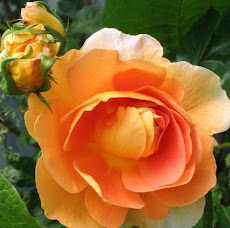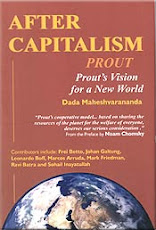The Bhopal gas tragedy, 1984; Out of sentiment D R had kept for years thousand rupees, which he had got from Sarkar for relief work. But when Bhopal gas tragedy happened – and Dada was sent there to do relief work – he thought he should use that money to help dying people there. So he went to the market to buy food with that money. He took the food to Hamidia Government Hospital. The worst cases were on the second floor in bad shape. It was very crowded, the cots were full and many more people were lying on the floor. After taking permission from the hospital director Dada started distributing the food; fruits, bread and milk products.
Later on the day he
started also receiving money, which had been collected from streets
of Bombay. Next day Dada returned to hospital with truck full of
food. The director was sitting in his office with other doctor. He
mentioned to the other doctor, that this swamiji came yesterday and
that he doesn't know what medicine he has given, but all the patients
that he tended previous day have recovered. Dada heard it and was
surprised. He asked them; “how that can be? The patients were in so
serious condition.” The doctor asked; “what medicine you have
given them?” Dada told that he had given only food and no any
medicine. Then he requested permission to do further distribution of
food to other floors as well and people in the camps. Dada understood
that the miracle happened only because the money had been given
directly by Sarkar. Mother Teresa message to Bhopal; http://www.nytimes.com/1984/12/12/world/mother-teresa-carries-her-message-to-bhopal.html. See some masters; http://www.speakingtree.in/masters.
…....................
Ostriches 1986;
One day Sarkar started talking about ostrich and its history. He told
that in ancient times soldiers used to fight on ostriches and that
they were capable of running faster than horses – nearly eighty
kilometers per hour. “Sadly” he said, “the day will come when
these species will disappear from the earth. We should make every
effort to save these birds, so that future generations will have
chance to see them.” Sarkar expressed his desire to obtain some
ostriches. Sectorial Secretary of Nairobi was given the duty to
arrange it. He contacted his South-African worker, who was originally
from Botswana, where his father was minister of environment, wildlife
and tourism. He informed that he would obtain a pair through his
father. The young female and male ostriches were traveling in boxes
in the airplane to Delhi and Dada R had been given duty to receive
them and bring to Calcutta.
Dada contacted a
veterinarian doctor in Delhi, who used to check animals in airport to
get them out of quarantine, so he helped to arrange the ostriches to
fly to Calcutta. In the meantime the Indian wildlife authorities
found out that two ostriches from Botswana had been imported to
India. The ostriches were a rare, endangered variety and since there
was no such variety in Indian zoos, they wanted to get the ostriches.
The ostriches had
arrived to their destination in Calcutta, Tiljala, and fence had been
made for them. Sarkar came to see the birds. He was very happy and
said that these were the birds he wanted to save. He praised those
who had participated into operation of bringing the birds, and sat
down and watched the birds. Then he told that they had been human
beings in their past life and that they had conceived a samskara to
see him. “I wanted to see them and they also wanted to see me,”
he said. He also emphasized that they should be given special
attention.
A short time later the
wildlife officials appeared on the gate with police. They told that
they had come to take the birds to a zoo, where they could be
properly cared for. “We have information that this variety of
ostrich is on the verge of extinction”, they said, “you will not
be able to take proper care of them. This is our responsibility. It
belongs to Indian zoo where everyone will have a chance to see it.”
When we informed Sarkar
that they were at the gate demanding the birds, he told us to
protest. “What right they have to take these birds,” he said,
“they did nothing to bring them here. We have all the documents,
don't let them enter.” The authorities finally kept on bothering,
but finally they gave up. The local people came often to see the
ostriches. The birds remained some time in
Tiljala, but when they grew to their adult size, they were sent to
Pashaka wildlife sanctuary that Sarkar had started in Ananda Nagar,
so that they would have sufficient space to roam, he didn't want them
to be caged.
…..............
Sarkar wanted to visit
Philippines 1979, but president Marcos didn't allow him to get visa
due to pressure by Vatican. Instead Sarkar flew to Taiwan,
where the government dealt with him as a VIP guest, although Taiwan
didn't have any diplomatic ties with India. Government officials were
receiving Sarkar in the airport and they had arranged 14 rooms hotel
accommodation as well. Sarkar would not accept the hotel rooms and
told to government officials graciously that one local member had
arranged already more simple and homely stay for him and his
companions. The visit lasted 19 days and Government provided cars for
transportation. About 70 members got personal contact with Sarkar.
Most of them were crying afterwords, as they had felt so much love
during the sitting.


Ei kommentteja:
Lähetä kommentti